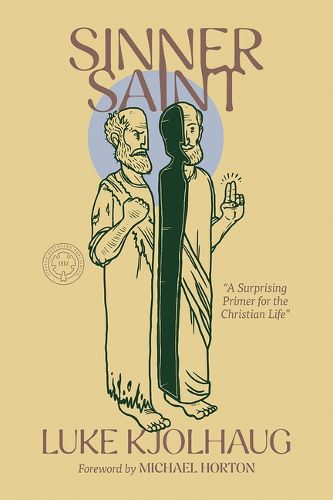Readings Newsletter
Become a Readings Member to make your shopping experience even easier.
Sign in or sign up for free!
You’re not far away from qualifying for FREE standard shipping within Australia
You’ve qualified for FREE standard shipping within Australia
The cart is loading…






Embrace the Paradox of Sin and Grace Few mysteries of Christian faith feel as urgent as the persistent presence of sin in a believer's life. This book offers a refreshingly honest approach to the tension we face daily-caught between our brokenness and our standing as redeemed children of God.
Explore the Heart of the Struggle You'll discover how an age-old teaching from the Reformation, often called the "simul" (Latin for "at the same time"), shines light on every believer's genuine condition. Step into the tension of being both sinful and justified, broken yet beloved, and learn how Divine acceptance meets our daily failings.
What You'll Gain A Clear Roadmap: Unpack challenging theological questions with practical explanations that illuminate the paradox of sin and grace. Authentic Insights: Encounter real-life stories, biblical references, and historical perspectives that showcase the breadth of Christian experience. Personal Application: Move beyond theory by applying these truths to your own faith walk, discovering hope, peace, and renewed purpose.
This comprehensive look at our inner conflict supplies real strength-helping you acknowledge your flaws without letting them define you.
Why This Matters Through straightforward storytelling and robust theological reflection, the author reveals a third way between simplistic "either-or" extremes. Recognize that you are fully known and profoundly loved, even in the midst of confusion or failure. The result is a new lens through which to see your day-to-day struggles, offering solace that God's grace is greater than your shortcomings. Explore the liberating truth that you are indeed both sinner and saint.
$9.00 standard shipping within Australia
FREE standard shipping within Australia for orders over $100.00
Express & International shipping calculated at checkout
Embrace the Paradox of Sin and Grace Few mysteries of Christian faith feel as urgent as the persistent presence of sin in a believer's life. This book offers a refreshingly honest approach to the tension we face daily-caught between our brokenness and our standing as redeemed children of God.
Explore the Heart of the Struggle You'll discover how an age-old teaching from the Reformation, often called the "simul" (Latin for "at the same time"), shines light on every believer's genuine condition. Step into the tension of being both sinful and justified, broken yet beloved, and learn how Divine acceptance meets our daily failings.
What You'll Gain A Clear Roadmap: Unpack challenging theological questions with practical explanations that illuminate the paradox of sin and grace. Authentic Insights: Encounter real-life stories, biblical references, and historical perspectives that showcase the breadth of Christian experience. Personal Application: Move beyond theory by applying these truths to your own faith walk, discovering hope, peace, and renewed purpose.
This comprehensive look at our inner conflict supplies real strength-helping you acknowledge your flaws without letting them define you.
Why This Matters Through straightforward storytelling and robust theological reflection, the author reveals a third way between simplistic "either-or" extremes. Recognize that you are fully known and profoundly loved, even in the midst of confusion or failure. The result is a new lens through which to see your day-to-day struggles, offering solace that God's grace is greater than your shortcomings. Explore the liberating truth that you are indeed both sinner and saint.